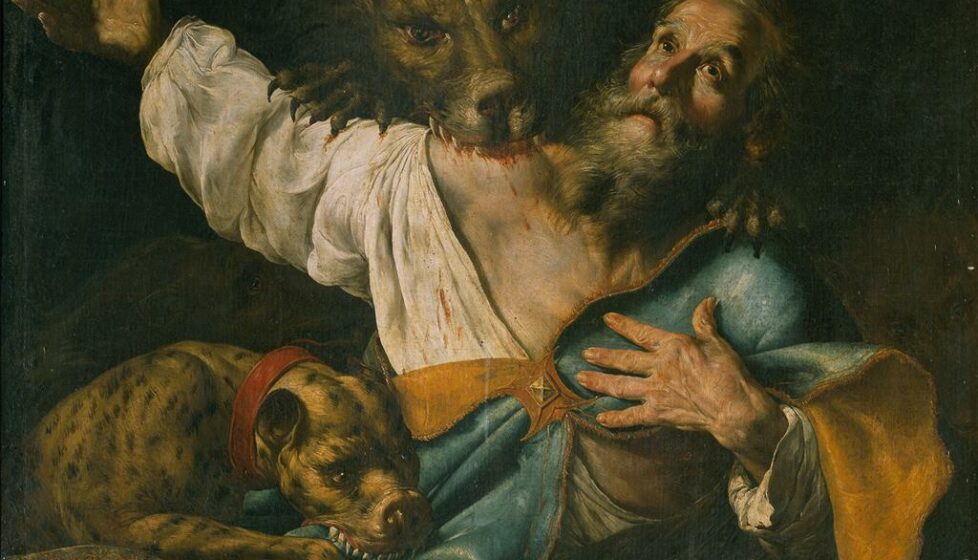Stories of Christian Martyrs: Dora Lilia and Ferley Saavedra
Colombia

The small number of children in the village of Santana Ramos in
Colombia enjoyed coming to school and learning from their
teacher, Dora Lilia Saavedra. She prayed with them every day
and told them about Jesus while they learned. She also sometimes traveled for hours to more distant villages, where there were no teachers, to
help the children there. She was a good, loving teacher. But one day in
November, the children’s ordinary school day was interrupted when two
men with guns, wearing army fatigues and boots, walked into the one-room schoolhouse and told the children to leave.
“There will be no more school today. Go home and return tomorrow,” they said gruffly. The children quickly gathered their belongings and slipped out of the schoolhouse, wondering what was going to happen.
Dora Lilia and her husband, Ferley Saavedra, who also taught at the
school, knew what was going to happen, and they were prepared. These
men who had come for them were guerrilla soldiers with the Revolutionary Armed Forces of Colombia (FARC), a Marxist movement characterized by threat, force, and violence. For decades they have terrorized Colombians, targeting Christians in particular. “Christians are dangerous,” they say. “Christians cannot lie. If the army asks them about us, they will tell the truth!” They also don’t like that Christians stand opposed to violence, which is the principal way of life for the guerrillas. They recruit members at a young age since the life expectancy of a guerrilla is short, and they don’t want anything or anyone to stand in their way or to weaken their cause. The Saavedras stood in their way by teaching children, for if the children knew about the love of Jesus and became Christians, they would not join the guerrillas’ cause.

Dora Lilia knew the risks when she returned to Santana Ramos to
teach. A poor rural farming village marked by violence between the
FARC guerrillas and the Colombian government, Santana Ramos was
Dora Lilia’s home, and she hoped, through her love of teaching, to bring
the light of Jesus there. This is exactly what she and her husband did,
and it was also why their lives were threatened. But even when Dora Lilia
was warned by a neighbor that she and her husband would be killed the
following day, the farthest thing from her mind was to take her family
and flee the village, though she was advised to do so.
Instead of panic, relief poured over her at the neighbor’s words.
Earlier, this man had come to tell Dora Lilia that her brother was going
to be killed. Now the neighbor was correcting his statement. “I have
made a mistake,” he said. “It is not your brother who will be killed
tomorrow… but it is you and your husband.” “This is better,” Dora Lilia told him. “My brother was not ready to meet the Lord. But my husband and I are.”
She refused to let fear keep her from her work, and instead drew
closer to her family and to the Lord for peace and preparation. That
evening the couple led their children in family devotions. They prayed
and read the Bible together. “Mommy may be going to sleep tomorrow for a long time,” Dora Lilia told her oldest daughter.
After the kids were in bed, the couple spent much of the night praying and fasting, reminiscent of Jesus’s time with His Father in prayer in
the garden of Gethsemane when He prayed, “Not my will, but yours, be
done” (Luke 22:42). When morning came, the Saavedras headed to the
school as usual, knowing that their lives, and those of their children,
were in the Lord’s hands.
After the soldiers marched in and the students had been sent away,
the guerrillas told the couple to say goodbye to their own children. Suddenly, more guerrillas entered, their big boots treading heavily on the
wooden floorboards. One of them pointed at the oldest child, Marcella.
“We will kill her first!” he shouted.
“No, please,” Dora Lilia pleaded. She stepped in front of the man to
shield her daughter from him. “It is me you want. Take me. Leave her
here and take me now.”
The crying children were left behind as Dora Lilia and Ferley were
taken out of the schoolhouse and led across a field to a river about three
hundred yards away. The guerrillas ordered the couple to lie face-down
on the ground, where they were each shot to death.
The Saavedras daily lived out the love of Christ. So influential were
their lives that just months after their death, twelve-year-old Marcella
was able to say, “If I met the men who did this I would forgive them. I
know this would be hard, but I know God forgives them. So I have to as
well.” Through her parents’ example, this little girl had learned love and
forgiveness in place of hatred and bitterness. It is certain that many other
children have learned that lesson as well and will continue to share it
because two teachers were willing to risk their lives to bring Christ’s love
and truth to a place where it was most needed.
“Rejoice in hope, be patient
in tribulation, be constant
in prayer. Bless those who
persecute you; bless and
do not curse them.”
Romans 12:12,14
This story is an excerpt from Foxe: Voices of the Martyrs. You can get your own copy free with any donation to The Voice of the Martyrs.



 Guide
Guide